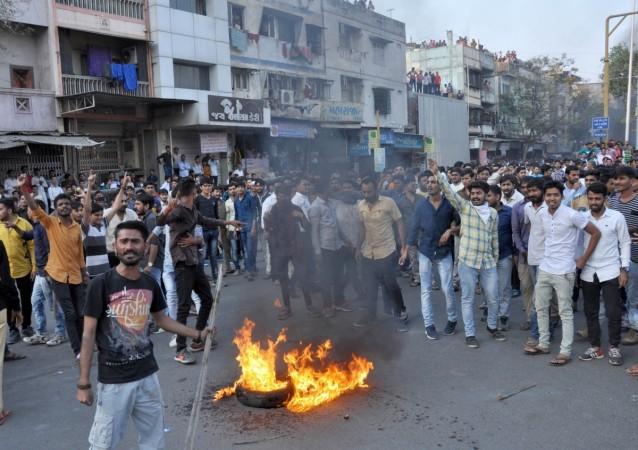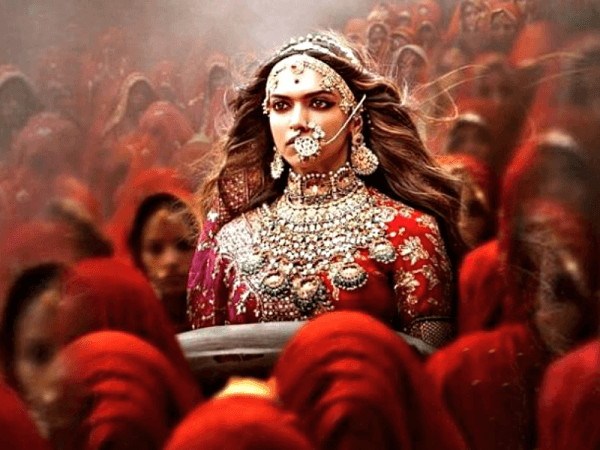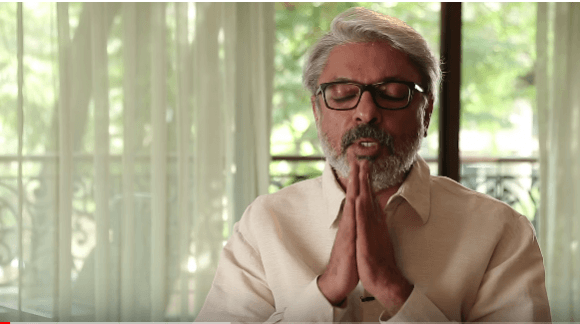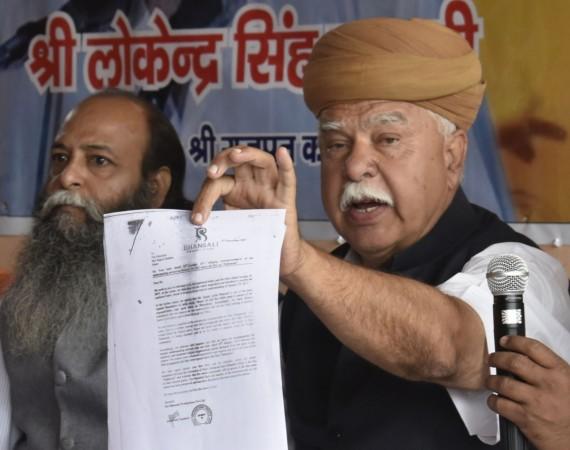
The Shri Rajput Karni Sena is now a household name. It seems to command a degree of fear in certain parts of the country, where it created havoc over the past few months protesting against Sanjay Leela Bhansali's magnum opus Padmaavat — earlier Padmavati — and forced four state governments to stop the film from releasing in those states. Reason: The group had issued a ban against the movie as they thought that the history and facts were distorted in the movie and there was an objectionable scene between Alauddin Khilji and Rani Padmini.
Then, the Karni Sena on Saturday, February 3, took a U-turn so fast that it left many a head-spinning! The group said it would promote Padmaavat, and withdraw the ban because, after a special screening of the movie, they realized that the magnum opus, glorifies the valor of Rajputs, and has no objectionable scenes! Well, this is the same group, that had literally called for director Sanjay Leela Bhansali's head and had had even issued threats to cut off the nose of Deepika Padukone, who plays the film's central character.
While one may debate ad infinitum and ad nauseam what caused this change of heart for the group, one thing is certain; the protests have given fringe groups a template of how to gain a political foothold and social prominence. And the fresh threat against Kangana Ranaut-starrer Manikarnika is possibly the first to have made use of that template.

Old habits, new approach
Now, this wasn't the first time that the Karni Sena protested against a film. The fringe outfit had raised the bogey of Rajput sentiment being hurt before the release of Ashutosh Gowariker's 2008 film, Jodhaa Akbar.
While for director Sanjay Leela Bhansali, this is not the first time that he had to face the wrath of fringe groups, amounting to heavy losses. During the making of Ram-Leela where he had been forced to change the names of the warring clans from Rabari to Rajadi and Jadeja to Saneda because of a petition in the Gujarat High Court by the Kutch Kathiawad Garasiya Association and another by a lawyer called Siddhrajsinh Chudasama. This led the filmmakers to even change the entire name from Ram Leela to Goliyon Ki Raasleela Ram-Leela because of allegations that it hurt religious sentiments.

It may be noted that previously these groups' protest-and-mollification cycles were mostly within legal boundaries, but things took a violent turn last year when Bhansali was attacked on the sets of Padmaavat — then Padmavati — by members of the Karni Sena.
Since then, the Karni Sena hasn't exactly been subtle in its protests. It has vandalized theatres and multiplexes, torched vehicles — including a car belonging to one of its own functionaries — and blocked traffic in many parts of Northern India. Its functionaries even attacked a school where students danced to a song from Padmaavat! Even a school bus carrying young kids were pelted stones at by these protestors.
Soft targets, hard returns
The Karni Sena is not the only one protesting against films. In the past, other right-wing outfits like the Shiv Sena or the Maharashtra Navnirman Sena (MNS), protested against movies like Raees, PK, My Name is Khan, Bajrangi Bhaijaan. However, what sets Karni Sena apart from other right-wing outfits is that the Rajput outfit rose to prominence by using violence along with the protests.
And what was this prominence? The Karni Sena was at the center of primetime debates on news channels at days on end. It also grabbed headlines in newspapers, magazines and on digital news media.
More importantly, it used the threat of violence to get four states to ban the release of Padmaavat. Or at least this was the reply the state governments gave to the Supreme Court when asked why they were not allowing the film to release in their states.
Thus, it will definitely not be a surprise if the Karni Sena decides to get into the fray in the upcoming Rajasthan Assembly elections, and even manages to win a seat or two. That win might set off a chain of similar protests by fringe groups to gain similar prominence and power.

Same goals, new template
And this time the formula has been laid bare by the Karni Sena:
1. Choose a film that appears to hurt your sentiments. The bigger the budget of the film and the more prominent the stars in it, the better.
2. Cause violence that affects the film's shooting or release.
3. Threaten the makers and the most visible stars in the film. Get them to react.
4. Continue protests — possibly violent — in the name of hurt sentiments. Play the victim card to the hilt if there is a crackdown.
5. Try to make the filmmakers agree to as many of your demands as possible.
6. Finally, let the filmmakers and the film off the hook, but not before you have become the talk of the town.
Meanwhile, even as this piece was being written, news came in that Kangna Ranaut's Manikarnika was facing similar protests in Rajasthan — once again from another fringe group, who allegedly supported the fringe group during its recent protests against Padmaavat. And these people, just like the Karni Sena before them, were also threatening to disrupt the shooting of the film. It's as if our apprehension was a self-fulfilling prophecy!
Watch the IBT India Facebook Live on whether Manikarnika will go the Padmaavat way:
And if you think this development is frightening, imagine if one day it emerges that it was the filmmakers of a protest-affected film who approached a fringe group to create controversy in order to emulate the box office dream run that Padmaavat is having right now! With the way things are going, even that is starting to look like a possibility now.

















